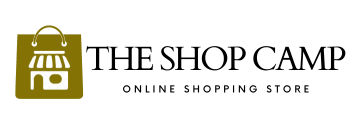Key Features of the Best eCommerce Stores
In today’s competitive digital marketplace, the distinguishing characteristics of top-notch eCommerce stores play a vital role in attracting and retaining customers. One of the primary features is a user-friendly design, which ensures that visitors can navigate the website seamlessly. This design should be intuitive, with well-organized categories and straightforward navigation paths that make it easy for users to find what they are looking for.
Another crucial aspect is mobile responsiveness. With a growing number of consumers shopping on mobile devices, eCommerce platforms must be optimized for various screen sizes. A responsive design adjusts content and layout automatically, facilitating a positive shopping experience for users regardless of the device being used.
Effective payment gateways are equally important. The best eCommerce stores offer multiple payment options, including credit cards, digital wallets, and alternative payment methods. This flexibility not only enhances customer convenience but also increases the likelihood of completed transactions. Additionally, integrating robust security measures, such as SSL certificates and two-factor authentication, is essential to protect sensitive information and build consumer trust.
Effective search and filtering options further enhance the user experience. By allowing customers to quickly find products that match their preferences, these features can significantly reduce the time spent searching, ultimately improving conversion rates. Personalization capabilities, such as tailored recommendations based on customer behavior, also contribute to a more engaging experience.
The importance of excellent customer service cannot be understated. Top eCommerce stores invest in support channels, like live chat and comprehensive FAQ sections, ensuring customers receive prompt assistance. Real-life examples, including brands like Amazon and Zappos, illustrate the effectiveness of implementing these features, showcasing how they successfully enhance customer satisfaction and foster loyalty.
Top 5 eCommerce Platforms to Consider
When embarking on an eCommerce venture, selecting the right platform is crucial to your business’s success. Below, we evaluate the top five eCommerce platforms, focusing on their features, pricing, ease of use, customization options, and scalability, to help various business types find their best fit.
1. Shopify: Renowned for its user-friendly interface, Shopify offers a seamless experience for small startups and established businesses alike. With a plethora of customizable themes and apps, it allows users to build a unique online store. Pricing starts from $29 per month, and it scales well with additional features, including integrated payment solutions and inventory management. However, transaction fees can accumulate if not using Shopify Payments, impacting profit margins.
2. WooCommerce: As a WordPress plugin, WooCommerce is an excellent choice for those familiar with the WordPress ecosystem. It offers expansive customization possibilities and is cost-effective, as the base plugin is free. However, additional extensions may lead to higher costs. WooCommerce is ideal for niche markets due to its flexibility and control, but the learning curve may be steep for those new to web development.
3. Magento: Built for larger enterprises, Magento is a robust platform that provides extensive features for scalability and customization. With a pricing structure that accommodates businesses scaling from mid-sized to enterprise solutions, it offers an impressive range of marketing tools. Unfortunately, Magento requires significant technical expertise, making it less suitable for small startups without dedicated IT resources.
4. BigCommerce: Praised for its built-in features, BigCommerce supports growing businesses with tools for SEO, marketing, and analytics. Pricing starts at $29.95 monthly, and it does not charge transaction fees, but it is important to consider its limitations on annual sales which can necessitate an upgrade to a higher plan. Its all-in-one approach is beneficial for businesses looking to consolidate their services.
5. Squarespace: While primarily a website builder, Squarespace’s eCommerce capabilities are strong, particularly for visually-oriented businesses, such as artists or designers. Starting at $18 per month for the basic eCommerce plan, it allows for easy setup without technical skills. Nonetheless, its focus on design might limit some eCommerce functionalities, so it may not be the best choice for large-scale operations.
Ultimately, each platform possesses unique strengths that cater to specific business needs, whether for small startups, large enterprises, or niche markets. Customer testimonials and expert reviews can provide valuable insights into the suitability of each option, empowering aspiring entrepreneurs to make informed choices tailored to their goals.
